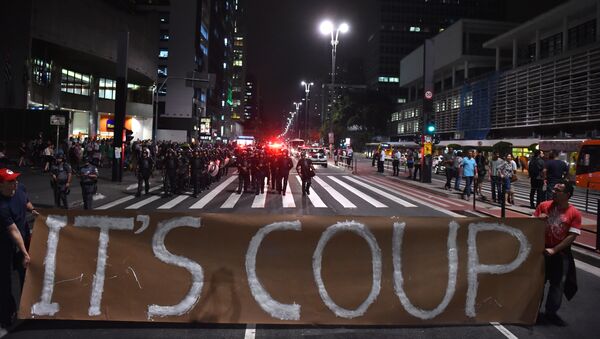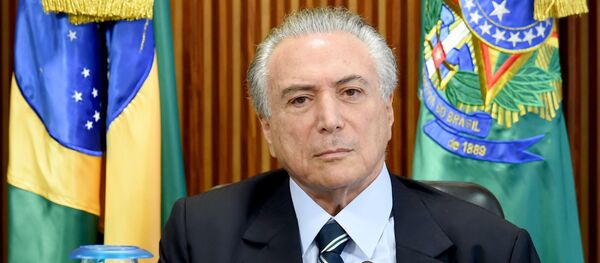Louiz Araújo, President of the Party of Socialism and Freedom (Psol), warned about the dire consequences Dilma Rousseff’s ouster could have for Brazilians.
“First, this is a blow to our fragile democracy, which is largely formal and dependent on economic interests. Secondly, this means the end of a left government that hoped to govern by reconciling irreconcilable interests. And thirdly, our elite will use this to get rid of the hard-won civil rights enshrined in our 1988 Constitution,” Louiz Araújo said in an interview with Sputnik.
When asked about the chances of the Supreme Court revoking the Senate’s decision to impeach Rousseff, Cláudio Pinho, a law professor in Brasilia, said he doubted it.
“Save for just a few members of the Supreme Court, the prevailing tendency is to keep the Senators’ decision in place,” he said.
In Washington, State Department spokesman John Kirby said that the United States would continue its strong bilateral relations with Brazil.
"We’ve seen reports that the Brazilian Senate in accordance with Brazil’s constitutional framework has voted to remove President Rousseff from office," Kirby said. "We’re confident that we will continue the strong bilateral relationship that exists between our two countries."
In a statement issued on Wednesday, UN Secretary General Ban Ki-moon extended his “best wishes to President Temer as he begins his tenure.”
“[I] trust that that under President Temer's leadership, Brazil and the United Nations will continue their traditional close partnership," Mr. Ban wrote.
In May, the upper house of the Brazilian parliament voted 55-22 to start impeachment proceedings against Rousseff after she was accused of concealing the country’s budget deficit ahead of the 2014 election. Rousseff regards the impeachment proceedings as an illegal coup attempt.




